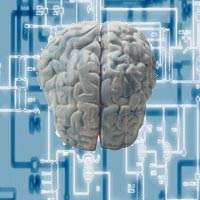Posted 18 December 2004 - 06:33 AM
About the subject of rebirth and my insistent question about the identity of the subject of rebirth and karma in Buddhism, I think it is possible for me to understand recurring rebirths half-way . . .
I have written a lot of posts about consciousness and unconsciousness in several forums, even in those where I had been banned.
If Buddhism teaches that there is no subject of rebirth or there is no distinct and unique identity of the subject of rebirth and karma, then I seem to see some connection with my personal interest in the query of where is the self when a person is in, for example, deep dreamless sleep, or in general anaesthesia, or in a coma, in that state when we can all agree that there is no consciousness in the subject.
You see, I distinguish between the routine consciousness and unconsciousness in a human subject. Then in consciousness I distinguish between what I call generic consciousness and proprietary consciousness. Not the best of terminology, I am sure. But you will get the idea.
When a human subject is in those states of unconsciousness as the ones I mentioned above, those states are no different in effect from death, I mean physical death, as dead in the cemetery or in the embalmed condition in the coffin.
Keep in mind, I say, in effect; because for all purposes of life in relevancy to oneself and to other humans and to the whole universe, one who is unconscious is totally irrelevant, except in his material resources and in his memorials, not for and in and by and of his self, but for other humans who are living and conscious.
If that unconscious human does not come out of unconsciousness into consciousness, namely: the sleeping subject does not wake up ever, the person in general anaesthesia fails to regain consciousness, or the human subject in a comatose state; then the unconscious subject is though in effect yet also definitively dead, and will be absolutely and physically dead sooner than later.
As I seem to understand, in Buddhism, in that period between rebirths, the self is gone, absent, or extinguished, or is in an indeterminate sort of existence. This state would seem to be similar to what I consider the self to be when a human subject is in an unconscious condition, for example, as I said earlier, in deep dreamless sleep, in general anaesthesia, or in a coma -- except that unlike the state of death between rebirths in Buddhism, the state of unconsciousness I refer to is not physical death, but efffectively death, in terms of relevancy for all acts and participation in life by the human subject when he is conscious.
If and when the unconscious subject comes back to consciousness, he can come back in generic consciousness or more normally in proprietary consciousness. Let me explain.
In that phenomenon where an unconscious subject comes back to consciousness but with total amnesia, his return is to generic consciousness only, unlike what normally is the return, namely back to the awareness of his distinct identification, to his, as I like to term it, proprietary consciousness.
In that first instance his consciousness is generic, in that he is aware of himself, and knows that he is a distinct entity, separate from other entities, but he does not possess his self-identity of who he is. In the other and normal instance of return to consciousness, which we call proprietary, he not only comes back to the awareness of himself as separate from other entities, but very crucially important, he resumes as well his specific identity: his name, his family, his biodata and curriculum vitae: namely, his who-ness is restored, not only his which-ness in a sense of numerical distinction of, say, Number 1 is not Number 2 or any other number.
The seeming agreement between what I tend to see in Buddhist death as the period bertween rebirths, and my understanding of the state of unconsciousness in such conditions as deep dreamless state, general anaesthesia, or a comatose period, the seeming agreement consists in that for both scenarios the self is gone, or absent, or extinguished, or in some indeterminate existence.
The agreement is in a way almost complete if my subject in unconsciousness returns to consciousness but in a condition of total amnesia, with no memory whatsoever of who he was before his lapse into unconscious, that is, with only his generic consciousness, not recouping his proprietary consciounsess.
I say the agreement is almost complete, because in Buddhist rebirth, the subject in his present rebirth does not know who he was in his previouis rebirths; he starts as a new identity, believing indeed that he was in some life previous to the present one, but not knowing who or what that was. That also is the condition of my subject having returned to consciousness but with total amnesia.
Otherwise, in the normal resumption of consciousness which is the return to not only generic but also proprietary consciousness, the agreement between my scenario and that of Buddhist rebirth is midway only; because when the Buddhist subject comes back to life from death by rebirth, he cannot have any awareness or memory of his being a particular distinct identity underlying his past rebirths. Not so with the subject of normal return to consciousness: he regains his identity, that is, he not only comes back to generic consciousness but also and crucially important, to his proprietary consciousness, his distinct identity, the memory of his name, address, biodata and curriculum vitae.
This my way of endowing Buddhist rebirth with some rationality, in an attempt to make some sense of the doctrine or belief.
Susma












































